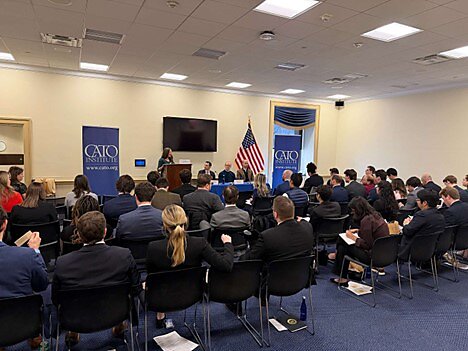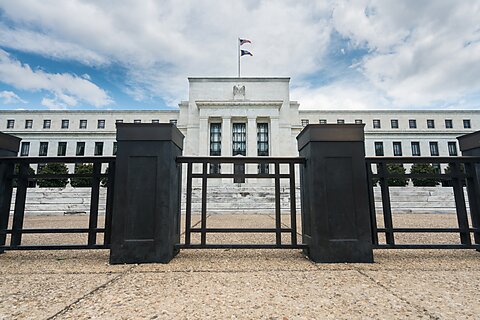Matthew Cavedon On April 23, 2021, the City of Marco Island installed automatic license plate readers (ALPRs) at each of the three bridges connecting Marco Island to mainland Florida. These devices automatically record and archive the precise locations of every vehicle entering or leaving the island, storing that information in a database accessible to law enforcement for three years. The ...
Romina Boccia and Tyler Turman The Supplemental Nutrition Assistance Program (SNAP), formerly known as Food Stamps, served 41.7 million Americans and cost taxpayers $100 billion in fiscal year 2024. Congress established firm income and asset limits to target households with the greatest financial need. Yet, states have found a way around these rules. Through a policy called broad-based categorical eligibility ...
Matthew Cavedon America is home to less than five percent of the world’s population, yet it incarcerates almost a quarter of all prisoners. The rate of incarceration in the United States has increased almost sixfold in the last half-century. As a result, prisons are understaffed and overcrowded. This problem is particularly acute in Alabama, which has the most overcrowded prison ...
Jennifer Huddleston On December 11, 2025, President Donald Trump issued an Executive Order on “Ensuring a National Policy Framework for Artificial Intelligence.” The order is a positive step because it recognizes the potential disruptive nature that a state patchwork of regulations could create at this critical period of AI development. It also reflects a recognition that, given the interstate nature ...
Dominik Lett Pictured left to right: Romina Boccia, Adam Michel, Dominik Lett, and Michael Cannon. On December 11, the Cato Institute hosted a Hill briefing on affordability. I was joined by my colleagues Romina Boccia, Adam Michel, and Michael Cannon to discuss a reality that most politicians in Washington would prefer to ignore: deficit spending drives up prices and reduces earnings. The ...
Katherine Thompson Nestled within this year’s National Defense Authorization Act (NDAA) is an attempt to severely constrain President Trump’s ability to decrease US posture, basing, and role as security guarantor in Europe. Congressional leadership, in closed-door negotiations, maintained the controversial provision opposed by the administration—a rebuke to the president’s push for Europe to own the responsibility for European security. The committee chairs ...
Nicholas Anthony The end of the penny was a long time coming. Yet, the Federal Reserve is causing unnecessary harm by refusing to distribute existing pennies—135 out of 192 coin distribution centers have halted penny distribution. In doing so, the Federal Reserve is forcing many Americans to relive the COVID-19 Coin Shortage. Making matters worse, the Treasury has yet to ...
Jeffrey A. Singer Recent press reports state that Health and Human Services Secretary Robert F. Kennedy, Jr., is considering having the US Centers for Disease Control and Prevention (CDC) adopt Denmark’s model childhood vaccination schedule. Denmark’s childhood vaccination schedule recommends protection against fewer diseases than the current US schedule (e.g., Denmark typically targets vaccines against around 10 diseases compared to 16–18 in the ...
Colleen Hroncich When veteran educator Alison Rini walked into the abandoned Head Start classroom in a Sarasota public housing complex, it was a COVID-19 time capsule—desk shields still up, boxes of masks collecting dust. The space had sat empty for years, and you could tell. But she saw possibility. Now, two years later, Star Lab serves twenty students in kindergarten ...
Norbert Michel and Christian Kruse The House of Representatives recently passed the Incentivizing New Ventures and Economic Strength Through Capital Formation Act of 2025, or the INVEST Act of 2025. The bill is effectively a bundle of capital formation bills, most of which aim to incentivize capital formation in both public and private markets. The INVEST Act contains many improvements ...












